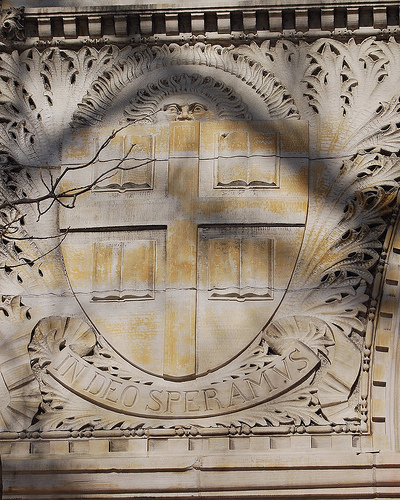
Yesterday I wrote about the personal viciousness that issues from the Left in a way it doesn’t from the Right. This actually played a big role in the development of my own thinking, both religious (toward Orthodox Judaism) and political (toward conservatism). When I was a Brown University junior, I was picked to be an opinion columnist for the Brown Daily Herald. The first column I wrote was about the racial segregation that existed then (this was 1985) at Brown and probably at similar places. Maybe it still does. Well intentioned race policies (affirmative action, coddling, indoctrination, but in particular, the special separate programs before freshman orientation for “Third World,” i.e. any dark complexioned, students) all contributed to a situation where blacks students effectively lived in a closed, separate parallel universe from white students. They ate separately, socialized separately, gravitated to certain courses of study, had separate black fraternities and sororities that marched around campus shouting in the middle of the night. It was tragic and a betrayal of authentic liberalism, I thought.
That’s what I wrote and the vilification began immediately. Obscene graffiti appeared on my door in Andrews Hall (“F*** YOUR RACIST A**”). I got hectoring personal visits. The Herald‘s letters pages were flooded with angry letters. Numerous fellow students told me they I was a racist and a bad person. I was a freshman counselor at the time and the dean of freshmen called me in to criticize me. The student board of counselors investigated me, presided over by a kid with the last name Kafka (no joke). Finally they kicked me out of the freshman dorm where I lived. One of the two deans who heard my appeal, which he informed me would be rejected before I’d made it, was later arrested for soliciting an undercover police officer at a highway rest stop.
The only public voice raised in my defense was that of another Herald columnist, Judy Warner, who disagreed with me, if I remember, but wrote that it was wrong that I should be abused by everyone just for stating an unorthodox view. Besides having a crush on her, I was grateful. She now writes a terrific blog for the New York Times (as Judith Warner).
Around this time I was starting to rethink my religious views.
One of my best friends at Brown, we’ll call him Michael, was a ferociously bright Jewish kid from Long Island. After we graduated, he “came out,” telling friends he was gay. I was startled but nothing more. As I myself became increasingly committed to Orthodoxy, he found he had a problem with me. Not I with him. His political views were also turning sharply left. The last time I saw him was in 1990 when I visited him at law school for Shabbat. On the visit I got quite sick and Michael took the occasion to tell me he had decided I was a “bad person” — literally, his words — and that our friendship was over. Why? Because I couldn’t per his demand positively tell him that I approved of his gay lifestyle — which in practical terms hardly existed, as far as I could tell.
He was not content with my saying that it wasn’t for me to judge him, as I in fact did not. But approve? I don’t approve of myself half the time. How could he insist that I approve of him — anything he did or might do? Over that issue, our friendship ended. It still makes me sad to think about it. Of course, this was the exact reverse of the politically manipulative stereotype where the poor, innocent gay person comes out and is rejected by his religious friend. Here, the gay person came out, made unreasonable demands of his religious friend, and when those weren’t promptly met, rejected him.
Do you see why I was long ago inured to hatred and intolerance from the Left?
